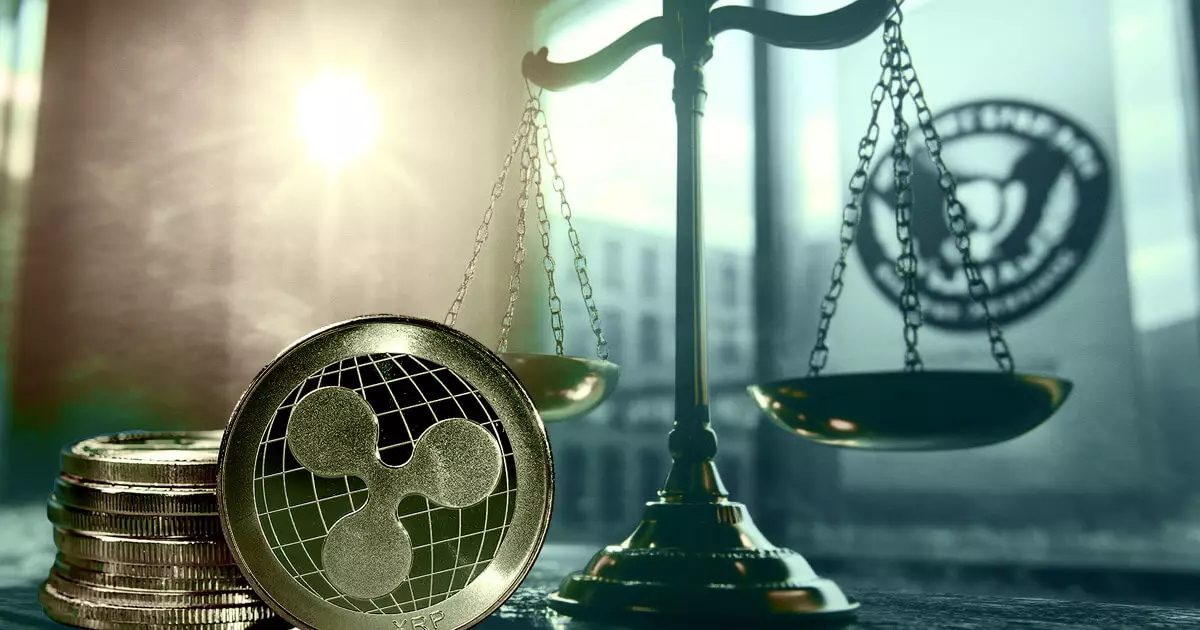The legal confrontation between Ripple Labs and the U.S. Securities and Exchange Commission (SEC) has unveiled significant implications for the cryptocurrency landscape. Ripple, a blockchain-based payment protocol created to facilitate cross-border transactions, is at the center of a regulatory storm that has raised key questions about the classification and treatment of digital currencies within U.S. law. The SEC’s inquiry started in earnest with the accusation that Ripple’s sales of its cryptocurrency, XRP, contravened federal securities laws. This case could create a legal precedent affecting not only Ripple but also other cryptocurrency projects operating within the American financial system.
In a notable development on October 17, the SEC submitted a Civil Appeal Pre-argument statement known as Form C to the U.S. Court of Appeals for the Second Circuit. This marked an important juncture in the ongoing legal battle as it sought to appeal various elements of Judge Analisa Torres’ previous ruling, which had been largely seen as a mixed verdict favoring Ripple. Most notably, Judge Torres’ ruling confirmed that XRP sales to retail investors did not constitute a violation of securities law but did identify XRP sales to institutional investors as potentially infringing.
The crux of the SEC’s appeal hinges on the aspects of the case that had not been fully resolved and the elements of the court’s ruling that had leaned favorably towards Ripple. The document reveals that the SEC does not contest the decision regarding XRP sales to retail investors, which seems to underscore that it is taking a strategic approach in its next legal steps. Instead, the SEC aims to scrutinize Ripple’s programmatic sales of XRP through digital trading platforms, claiming that these operations may undermine regulatory compliance.
The SEC has also focused on Ripple executives, specifically Brad Garlinghouse and Chris Larsen, alleging that they may have aided in illicit XRP sales on digital exchanges. Their contributions could potentially further complicate Ripple’s defense and open the door for more intense scrutiny of the company’s leadership. The SEC’s intent to challenge the trial court’s conclusions “de novo” indicates that they are seeking an entirely fresh look at these specific legal questions, which, depending on the outcome, may have far-reaching consequences.
With the SEC opting not to appeal the monetary penalties established in the previous ruling, many in the legal and financial communities are contemplating the broader implications of this move. By not contesting the $125 million penalty or denial of disgorgement, the SEC seems to be channeling its resources toward challenging what it perceives as more pressing legal matters. This could signal an attempt to carve out legal authority over aspects of cryptocurrency transactions that remain ambiguous under current law. The lack of an appeal concerning monetary penalties could be an indication that the SEC feels confident that their argument focused on the status of XRP within rising trading platforms is more pivotal to the digital currency’s classification—and potentially more damaging to Ripple.
Meanwhile, Ripple’s Chief Legal Officer, Stuart Alderoty, maintains a steadfast position, reiterating that the core ruling affirming that XRP does not constitute a security remains intact. This assertion underlines Ripple’s ongoing strategy to defend not only its operations but also the legitimacy of XRP as a non-security asset. Alderoty’s assertion reflects the broader concern among many crypto firms about regulatory uncertainty and the potential implications of the SEC’s decisions on the future of cryptocurrency regulation.
As Ripple and the SEC continue their uphill battle in the courtroom, the outcomes may set important legal precedents that could shape the regulatory landscape for cryptocurrencies. The legal framework surrounding digital assets is still evolving, and the ripple effects of this case are likely to reverberate significantly across the industry. The coming months will be critical as both parties prepare for further legal challenges and a possible cross-appeal from Ripple. Stakeholders—ranging from legal experts to investors within the crypto space—are keenly watching how these proceedings unfold, as they may determine the future status and development of cryptocurrency in the regulatory environment. The outcome of this high-stakes legal confrontation may very well define the operational landscape for blockchain technologies and digital currencies within the United States for years to come.

